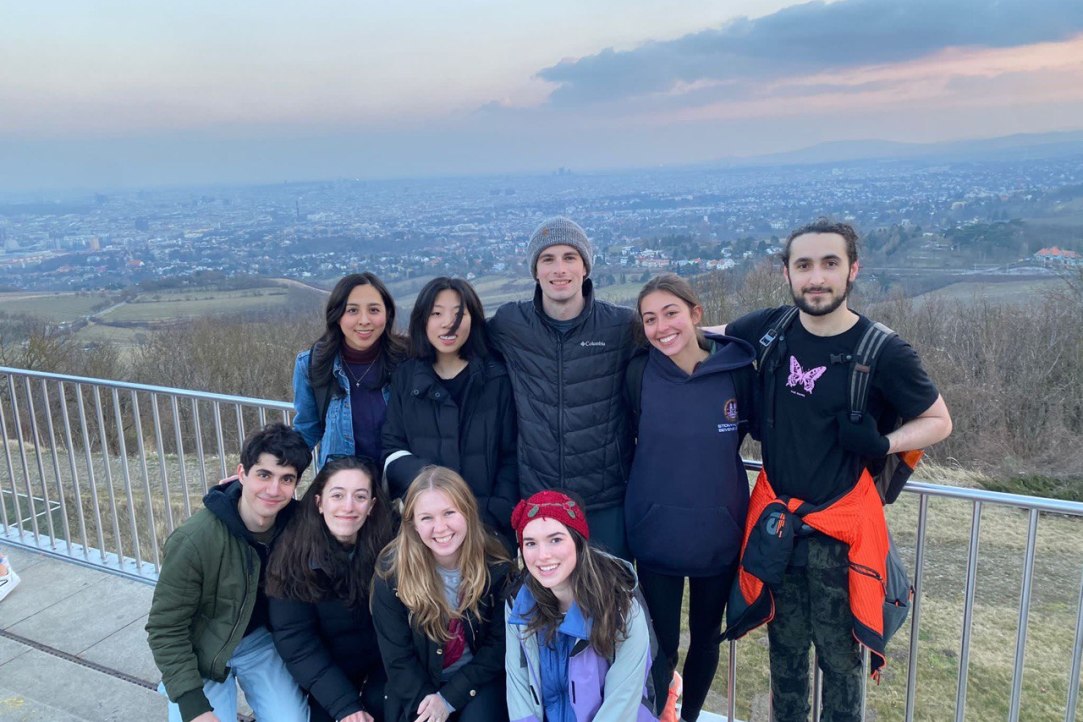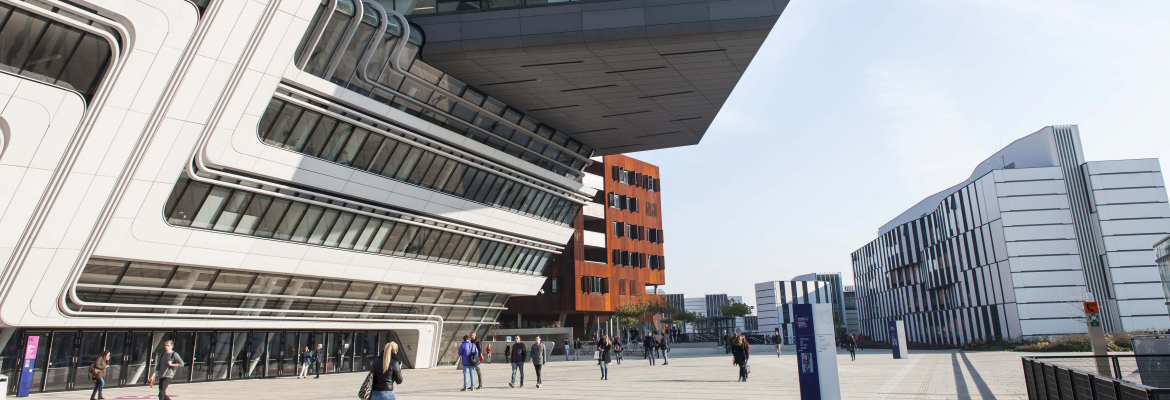Vienna University of Economics and Business (WU) – Austria’s Leader in Business Education
Sergey Kazaryan, a third-year undergraduate student in Business Informatics, spent his spring semester in Vienna as part of the exchange program with WU (Vienna University of Economics and Business).

Studying at WU (and not just studying!) gave me a truly positive experience of being in a new environment — something I sincerely wish every student could try for themselves.
In this review, I’ll walk you through the main stages of the exchange program and highlight some differences in the learning process compared to HSE.
WU is one of Austria’s leading institutions in business education, where students not only benefit from a high level of academic quality, but also enjoy the beautiful architecture of the campus — especially the iconic WU Library & Learning Center designed by Zaha Hadid.
So, the most important thing to do before your mobility begins is course registration. It’s time-limited, so choose your courses in advance and try to register within 30 seconds (okay, maybe 40) of the system opening, prioritizing the courses that are key for your individual curriculum — otherwise, seats may run out. I also recommend checking reviews of the professors teaching your chosen subjects. In Austria, there’s a platform similar to RateMyProfessor with ratings for most WU faculty — I found it very helpful.
Vienna also has a student union, ÖH, which plays an active role in university life (you’ll need to pay a small fee for membership). Another important player during your exchange semester will be the Erasmus Buddy Network (EBN), which regularly organizes tons of events and offers perks like SIM card discounts. Each exchange student is also assigned a buddy who can meet you at the airport and help you with any questions you might have — so whatever problems you face, you’ll have someone to turn to.
From my side, I highly recommend signing up for German language courses before the semester starts — it helps you adapt more quickly and make friends to travel with across Austria and Europe. It’s always more fun with company :)
The public transportation system in Vienna is very straightforward and budget-friendly for students — for just €75 you get access to the entire public transport network in the city for the whole semester. I also suggest attending as many EBN events as possible — they bring together students from all over the world and the atmosphere is always great.
Now a few words about academics. In general, the system is somewhat similar to what we’re used to at HSE, so there was no culture shock. The key difference is that professors have a lot more flexibility in how they organize their courses. They can choose the days and duration of classes. For example, it’s not uncommon to have a 4-credit course that only lasts two weeks, with two sessions a week, each running 6–8 hours. Sounds intense, right? Personally, I found the condensed format very convenient — two weeks and you’re done with the course! And when the topic is interesting, sitting through 7 hours isn’t as hard as it sounds. Plus, professors are usually good about giving breaks when they notice students getting tired.
Extracurricular opportunities are also diverse: sports clubs, interest-based groups, and — of course — plenty of business events like pitch days, where you can hear about student startups. There’s also access to free psychological or psychiatric support, so you’ll be well taken care of. And honestly, sometimes you don’t even need to look for extracurriculars — they find you. The campus regularly hosts concerts, and you might stumble upon Aperol or mojito stands (thanks to the student union!).
All in all, WU is a fantastic place for an exchange semester. I highly recommend it! Just be sure to bring plenty of money (Vienna is one of the most expensive cities in Europe), pack both winter and summer clothes, and get ready for an unforgettable trip!

